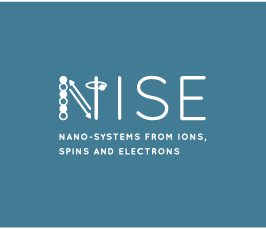New concepts based on magneto-acoustic wave interactions
Seminar
- Datum: 04.09.2017
- Uhrzeit: 10:30
- Vortragende(r): Pallavi Dhagat and Albrecht Jander
- Oregon State University, Corvallis, USA
- Ort: Max-Planck-Institut für Mikrostrukturphysik, Weinberg 2, 06120 Halle (Saale)
- Raum: Lecture Hall Building B

Acoustic waves can be used to manipulate the magnetization of magnetostrictive materials. Through the Villari effect, the temporally and spatially varying strain in an acoustic waves produces a corresponding variation in the local anisotropy of the magnetostrictive material. In this seminar, we report on a series of experiments that demonstrate specific acousto-magnetic effects (and speculate on their technological application): 1. Writing magnetic patterns with acoustic waves (data storage), 2. Scattering of spin waves off of acoustic waves (signal processing) and 3. Parametric pumping of spin waves with acoustic waves (amplification and correlation).
Part 1. Pallavi Dhagat For data storage, strain generated by acoustic waves propagating on the surface of a magnetostrictive film can be used to temporarily and locally reduce the coercivity to enable writing of magnetic data. We show that it is possible to imprint specific magnetization patterns, or focus an acoustic wave to a small spot that enables information to be recorded on the film with lower field using a conventional write head. This concept of strain-assisted writing is similar to heat-assisted magnetic recording (HAMR) developed for hard disk drives.
For signal processing, we show that the spatial modulation of anisotropy by a surface acoustic wave can establish a tunable Bragg grating for spin waves in yttrium iron garnet (YIG). Since this Bragg grating moves with the velocity of the acoustic wave (which in our experiments is about 1/10 of the spin wave velocity) the reflected spin waves experience a Doppler frequency shift. Remarkably, for backward volume spin waves, this Doppler shift is seen to be the reverse of the normal due to the negative spin wave dispersion.
Part 2. Albrecht Jander For spin wave amplification, we demonstrate the parametric interaction of spin waves with an acoustic pump wave in YIG. In this experiment, the frequencies of the spin and acoustic waves are matched such that the acoustic wave is near twice the frequency of the spin wave. Under these conditions, the time-periodic modulation of the effective anisotropy field results in parametric pumping of the spin wave. The generation of an idler spin wave from the signal spin wave and a clear threshold for this effect are evidence of the predicted non-linear parametric processes.